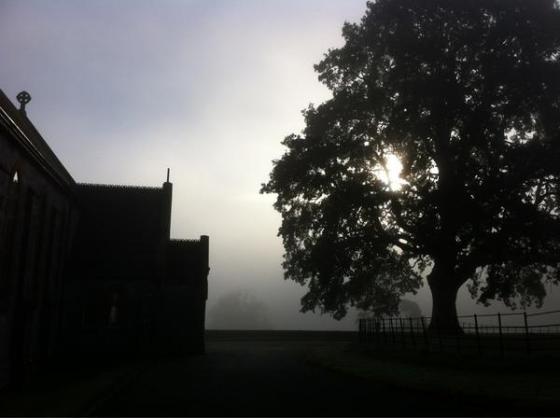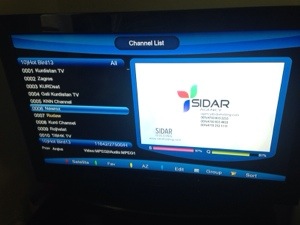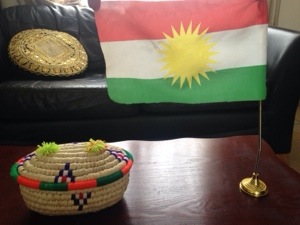
I was giving a class about Islam to my second year students last November and we were discussing Islamic dress. I asked the students if any of them would be interested in participating in World Hijab Day and explained that … Continue reading

I was giving a class about Islam to my second year students last November and we were discussing Islamic dress. I asked the students if any of them would be interested in participating in World Hijab Day and explained that … Continue reading

Something mad is happening. Mass went viral this week in Ireland – the Facebook version. And this afternoon as I was walking through Waterford City there were people outside the Catholic cathedral wearing luminous vests with the words ‘Nightfever’ written … Continue reading
In 2004 I made a radio programme about the enlargement of the EU. The pieces traced the history of the EU and its impact on Ireland. It’s seems timely to post these pieces now in post-Brexit waters. They were broadcast at the time on WLRfm and won a PPI award that year – despite the phone-audio. Hopes for the European project were still high.
In 2005 I made a series of short radio documentaries about religion in Waterford. It wasn’t a comprehensive outlook of the situation but it explored some emerging and changing themes within the religious landscape of Ireland at that time. It was a lot of fun to make and a real labour of love. The series went on to win the New Adventures in Broadcasting Award 2005. The piece ‘African Voices’ was shortlisted for the Media and Multicultural Awards 2005 (MAMA). The pieces were grant funded by the Broadcasting Commission of Ireland (now the Broadcasting Authority of Ireland) and were broadcast on the wonderful WLRfm.
This year I’m planning to dive back into radio and realise those old pieces aren’t available anywhere. So I’m posting them here for anyone who would like to hear.

I took this on an October morning many years after making the radio programmes. I returned there after my world at that time had fallen apart. The nuns looked after me.
2. ‘Monks at Mellary’ – a piece about the monks at Mount Mellary
3. ‘African Voices’ – these two pieces looked at new African churches and the impact of the presence of African groups on an existing religious group. I remember that the singing of the Ghanaian group at the United Presbyterian and Methodist Church blew me away.
4. ‘Declaration of the Bab’ – the Baha’i community in Waterford
5. ‘The Way we Were’ – this one is about Catholicism in Ireland in the 50s and 60s. It features, amongst others, the wonderful Eddie Wynberry. It also includes the voice of my own Dad who at 73 can still recite the Catechism, something which he does sometimes to entertain.

I grew up with stories of a man called ‘the Deacon’. He wasn’t a religious deacon but he did have, the story goes, the cure for skin cancer. He examined moles, cysts, freckles, skin-tags, pimples, spots and warts. He’d diagnose … Continue reading

The marriage referendum in Ireland last Friday marks a watershed in the religious history of Ireland. A Saint-Patrick-style moment. Although it wasn’t a referendum about religion, it has huge implications for religion in the country and represents yet another radical … Continue reading

There’s something beautiful about the Bahá’í beliefs. In a world where identity is too often made up of simple dualistic divisions that result in lots of usses and thems, here is a group which considers humanity as one. Even boundaries between religions are transcended, … Continue reading

Today is the 70th anniversary of the liberation of Auschwitz concentration camp and to mark the date I’m posting four radio documentary-shorts that I made to mark the 60th anniversary and which were broadcast at that time on WLRfm (Waterford Local Radio) … Continue reading
God isn’t dead and religion isn’t dying. Even a cursory glance at global events in recent months illustrates the ongoing relevance of religion and religious beliefs for shaping contemporary social space, influencing political ideologies and fuelling international conflict. According to the historian Tom Holland, even the core presumptions of western secularism are shaped by religion (in this case Christianity). Religion is embedded in our societies and ideas of God embedded in men’s minds.
The actions of religious groups in distant and diverse parts of the world today can send ripples and after-shocks that stretch across national boundaries, sometimes instantaneously.
The actions of the radical Islamic group ISIS (the Islamic State of Iraq and Syria, sometimes called ISIL the Islamic State of Iraq and the Levant) have ramifications which span the globe. The group, who more recently called themselves IS after claiming to have established an Islamic State or caliphate, are based primarily in Iraq and Syria.
The latest report about ISIS is that they have killed five hundred Yazidis in Iraq and have taken three hundred women captive. Some of those killed are reported to have been buried alive. Tens of thousands of Yazidis have fled and are camped on Mount Sinjar where children are dying of thirst.
One of the interconnections between ISIS and Ireland is likely to be an interest (at the very least), of a small number of Irish Muslims, in joining their ranks. Irish Iraqis who have family members living in Iraq are also likely to be impacted upon by their actions.
One person in Ireland whose family are in the Kurdistan area of Northern Iraq is Makhmury.
Two days ago Makhmury was watching the Kurdish news on satellite TV in her home when one of her brothers and a cousin unexpectedly appeared on the screen. Her brother and cousin were being interviewed in Makhmury’s home city of Makhmur in Kurdistan, northern Iraq.

The TV with a list of Kurdish stations available
‘They were on the news saying that they were preparing to fight ISIS. ISIS weren’t in the city yet but they were close. All the women and children had been evacuated’.
Makhmury says she went into a kind of shock and has been crying so much since then that this morning she had to use eye-drops to reduce the swelling. She says that she is now watching the news day and night and sleeps little. Today her husband and her son insisted she got out of the house for a break from the news. Her phone is constantly by her side.
Makhmury came from Makhmur to live in Ireland twenty-seven years ago. She has three grown-up sons and an Irish husband. Her only other family member in Ireland is a nephew. Most of her family are still in Iraq and many of them live in Makhmur. Her sister, brother, in-laws, uncles, cousins, nieces and nephews all have homes there and they have all either left or are preparing to fight.
‘They had to leave very quickly’ she tells me. ‘They had to save themselves. They were worried about their daughters and the women. That was the priority – to bring them to safety. I’ve seen eye-witness reports from people who saw what was done by ISIS to the Yazidi in Shengal – women were raped and then their throats were slit. Hundreds were taken away. They separate the beautiful ones and they take them away. Thousands of Yazidis fled to the mountains.’
Kurdish fighters, called the Peshmerga (guerillas) are now involved in battles against ISIS in Northern Iraq. Some of Makhmury’s family are fighting with the Peshmerga. Makhmury explains that ninety-five percent of Kurds are Muslim and the other five percent is made up of Christians, Yazidis and other religions including Jews. She estimates that there are around two thousand Kurds living in Ireland.
Makhmury manages to keep in daily contact with her family in Iraq via mobile phone. She can sometimes hear the children crying in the background. She says everyone is anxious and upset.
When I sit at her kitchen table her nephew calls from Iraq to update her. All her family are safe and in Erbil at the moment. Makhmury is very hopeful that they will be safe because Erbil has a large international community including many Americans. She tries to reassure her sister-in-law over the phone. ‘It could be worse’ she tells her.’ At least you can stay with relatives, you are not on the mountains, you have food and drink’.
ISIS model their behaviour and style on what they believe to be that of the Prophet Muhammad and the Prophet’s companions from 7th century Arabia. Non-Muslims have been persecuted by ISIS as well as Muslims who do not agree with their specific brand of Islam. Christians in areas under their control have been given a choice to convert to Islam, pay a tax, or face execution. The Yazidis, a minority religious and ethnic group, have also been told to convert or face death.

A Kurdish flag and Kurdish decorated basket in Makhmury’s home
Although ISIS are in Iraq and Syria their influence is not limited to geographical space. Reports of their actions also influence Irish understandings of Islam and attitudes towards Muslims. These reports have the potential to fuel Islamophobia which in turn leads to isolation of the Muslim community in Ireland amongst other things.
Makhmury’s own attitude towards ISIS is clear. ‘They are terrorists’ she says. ‘They are not Muslim. Muslims have to bring peace. To be a good Muslim you have to bring peace to everybody. You don’t hurt anyone. You can’t be a Muslim and slit throats, rape women, destroy people’s homes’.
* Since writing this blog yesterday, Makhmury has been in touch today to say that ‘the city of Makhmur has been recaptured by the Kurds Peshmerga and guerillas and this is a great relief for me and my family and everyone else in the north of Iraq. Well done to Peshmerga and guerrillas and all the courageous fighters’.
Anyone interested in reading Tom Holland’s views on Christianity and western secularism can, for starters, check out http://www.newstatesman.com/religion/2009/04/muslims-essay-islam-state

History – or hi-story, or his-story – is essentially a story about the past. It is not necessarily a true reflection of what happened. It is what is said to have happened. There are different versions of what happened. That’s … Continue reading